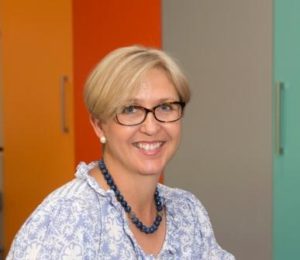

Maternal, child and family health nurses provide the most accessible and freely available health services for vulnerable families in Australia. Now a comprehensive new set of national standards will enhance their ability to work with families in all states and territories to support the health and wellbeing of Australian children.
The new quality framework will not only define this work but provide the best platform for service delivery, says project leader Associate Professor Julian Grant, from the School of Nursing and Midwifery at Flinders University.
“Nurses don’t just give families information and weigh babies, we develop relationships with families and support them where and when they need us,” she says.
“Their core skills are enhancing growth and development, supporting maternal mental health, building parent capacity while providing information to support behavior and attitudinal change.“
Currently all maternal, child and family health nurses meet the Nursing and Midwifery Board of Australia (NMBA) Registered Nurse standards for practice. Some also meet the Registered Midwife standards for practice.
The National Standards of Practice for Maternal, Child and Family Health Nurses framework will help reduce the widening gap between less advantaged, developmentally vulnerable children in Australia, Associate Professor Grant says.
“This is increasingly important when the number of children who are developmentally vulnerable at age five and living in the most disadvantaged areas is growing.
“More than one in 10 Australian children aged under five are vulnerable in some area of social, emotional or physical health at any time compared to less disadvantaged children.”
Professional nursing in the early years will help these children and their families, to achieve their developmental milestones in health, wellbeing and academic achievement.
Adjunct Professor Sally Brinkman, Head of Child Health Development and Education and Co-director of the Fraser Mustard Centre at Telethon Kids Institute, says: “In an increasingly difficult and complicated world, it is crucial that the maternal, child and family health workforce has a consistent set of standards across the country.
“Maternal and child health nurses are most often the first line of support for young families who are about to embark on the most important journey of their lives – raising their children,” Professor Brinkman says.
“A well trained, skilled and modern maternal, child and family health workforce is fundamental to support the health and wellbeing of our children; the future of our country.”
UniSA Emeritus Professor Dorothy Scott says the new framework is an important milestone in the proud history of the nursing profession in Australia.
“These national standards are a blueprint for providing the highest standard of maternal, child and family health nursing to all children in our land.”
The National Standards of Practice for Maternal, Child and Family Health Nurses in Australia will be launched at the biennial Maternal Child and Family Health Nurses Conference at The Peninsular, Docklands in Melbourne today (Friday 2 June).
The framework was developed in collaboration with nurses and nursing bodies, the industry and community with funding from Maternal, Child and Family Health Nurses Australia (MCaFHNA), Gymbaroo Australia and Flinders University.
Associate Professor Grant says the research included an international review of child and family health nursing practices and key elements from existing state based standards to inform draft standards.
These were then reviewed by industry, community and the professions through a qualitative online survey. The resulting draft was then tested using a modified Delphi survey for maternal, child and family health nurses and reached a 97.8% consensus on the proposed framework.
Others in the research team were Creina Mitchell (Griffith University), Lesley Cuthbertson (Flinders University), Sarah Fraser (Aboriginal Health Council of South Australia) and Lola Bishop (Flinders).

